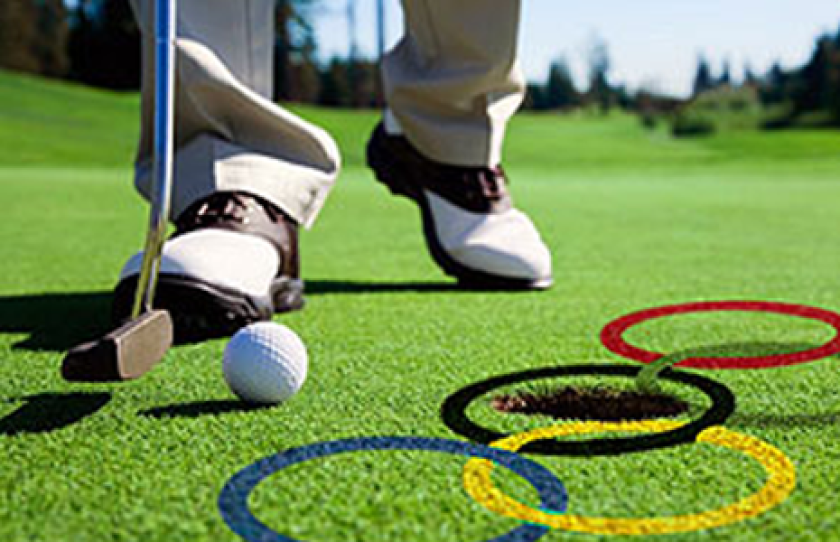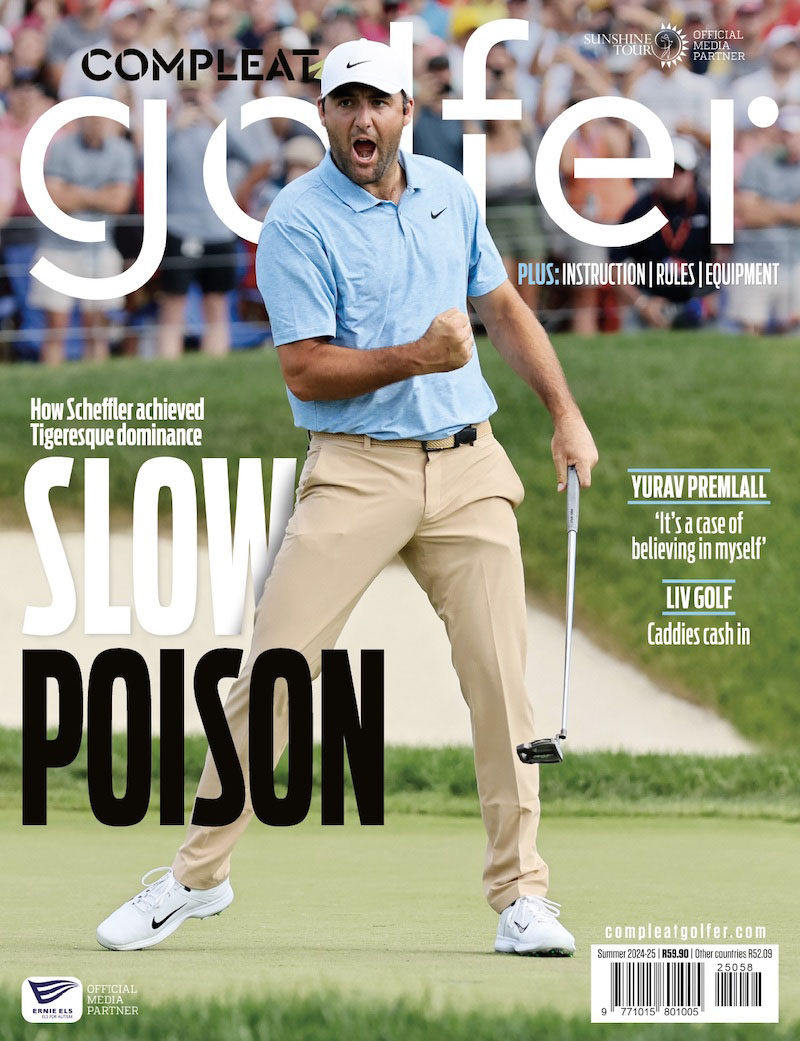Players have realised that the memories of a lifetime outweighs the opportunity to make money for a week. Writes Gary Lemke in the latest Compleat Golfer magazine
South Africa’s men’s team will be represented by Oosthuizen and Garrick Higgo, who overtook Christiaan Bezuidenhout for a place in the squad
‘Just to be able to compete as an Olympian is a huge honour and hopefully I can represent Norway well’ – Viktor Hovland
Five years ago the Zika virus was the talk in golf’s locker rooms. Rio de Janeiro, the host of the 2016 Olympic Games, was deemed too risky by many of the top golfers, with concerns around the virus being cited as an excuse for skipping golf’s re-entry to the Games 112 years after it was previously staged.
Bubba Watson, then the world No 5, was the highest-ranked men’s golfer after those ahead of him withdrew over fears of contracting Zika.
For South Africa, Louis Oosthuizen, Branden Grace and Charl Schwartzel all made themselves unavailable, as did Lee-Anne Pace on the women’s side. As selection fingers moved down the World Ranking list, Jaco van Zyl and Brandon Stone became the two leading South Africans willing to go to the Olympics.
Justin Rose went on to win the men’s gold medal, while players, men and women, had the experience of a lifetime. There were no recorded cases of Zika at Rio 2016.
Now all paths are headed to Tokyo, a city where up to 80% of the locals don’t want the Olympics to be held. The country is still gripped by another devastating Covid-19 wave and the pandemic has forced large parts of the country to grind to a halt. A state of emergency has just been lifted, as drastic measures to curb the spread of the pandemic have been taken.
But the top golfers, except for Dustin Johnson who declared himself unavailable in March 2020, have mostly stuck up their hands for Tokyo selection.
While the Zika virus was a convenient excuse to not attend Rio 2016, the bottom line was money. Surely? There’s no million-dollar first prize at stake at the Olympics, just a gold medal for the winner, a silver for runner-up and bronze for third place. There’s no cut and only 60 players in each field.
In the months after 2016 I was told by golfers that it wasn’t Zika that forced them to make themselves unavailable, but rather a problem with the PGA Tour’s scheduling. That too didn’t make much sense.
After all, in 2016 the PGA schedule around Rio was this: The PGA Championship, the Travelers, the Olympics, the Wyndham Championship, all in successive weeks. This year the schedule reads: The Open Championship, 3M Open, the Olympics, WGC Championships-St Jude Invitational, all in successive weeks.
So, scheduling? Nah.
Zika in Rio (which has similar time zones to the US) versus playing in a Covid bubble in Japan and golfers have chosen the latter. That speaks wonders about the power of the Olympics. It would be even easier for them now in 2021 to skip the Games compared to 2016, but word has got round as to what a unique event it is.
South Africa’s men’s team will be represented by Oosthuizen and Garrick Higgo, who overtook Christiaan Bezuidenhout for a place in the squad by virtue of his victory at the Palmetto Championship.
That saw him climb to No 39 in the world, seven places above Bezuidenhout. To stay there, Bezuidenhout needed to finish lower than 55th at the US Open or at least match his countryman’s finish at Torrey Pines.
Justin Rose was unable to make the Great Britain team to defend his title, as only two places are allocated to players from that region. There are four Americans, given their strength in the rankings. The qualification criterion is that if a country has four players in the world’s top 15 all four can go, otherwise it’s the top two from the next highest ranked countries.
The leading Briton headed to Tokyo is Tyrrell Hatton, who was enthusiastic about the Olympics. ‘If I have got the opportunity to play in the Olympics I will definitely go,’ he said in January. ‘I imagine it would be a fantastic experience and not one you are ever guaranteed to be able to do again. Hopefully I can give myself the opportunity to be on the team.’
Of course, The Masters win by Hideki Matsuyama means he will be golf’s poster boy for Tokyo, a local who has brought honour and pride to a golf-mad nation, but one which is buckling under the third wave of Covid-19.
‘The crowds in Japan are fanatical; that’s the best way I can describe them,’ says Australia’s Adam Scott. ‘I remember I took the Green Jacket over there in 2013, and the response I got was incredible, so I can only imagine what Hideki will experience.’
There’s still uncertainty on whether crowds will be allowed to attend and if there are, it seems certain it will be limited to the local population, with foreigners barred. Not quite the environment Matsuyama would like, but in a way no different to that of the Springboks who will take on the British & Irish Lions as world champions, with no spectators in the stadiums. The show just goes on.
Norway’s leading candidate, Viktor Hovland, is also excited about Tokyo. ‘We had a couple of Norwegian players in 2016 and they certainly loved the experience. Obviously, it’s the Olympics and if I have a chance to compete, I certainly would not decline. Just to be able to compete as an Olympian is a huge honour and hopefully I can represent Norway well.’
Rose says his gold medal is growing in stature. ‘I think since winning it, I realise how important it is,’ he says. ‘Literally every week I play golf, I hear something about the gold medal from crowds or from media or from somebody. I don’t hear about the US Open now. I hear only about gold medal.
‘So it’s been very important to the golfing public and because of that, other players have realised that it is an important event, and I think golf is going to be very well represented in Tokyo.
‘Like tennis, it took a Games or two for all the top players to really understand how important it was, but I think it’s going to be something that everyone is going to want to experience in a career.
‘It only happens once every four years. In the Major championships, especially now, you have one, then another one in a couple of weeks and another in a couple of weeks. In the Olympics, you have to wait four years.
‘I think it’s going to be very important and I feel very lucky that I was able to achieve what I did in Rio. Yeah, it lives with me, still, every week that I play because I hear so much about it.’
The telling part of Rose’s view is that it took a Games or two for players to realise the uniqueness of the Olympics. Now, they are all clamouring to be part of the show. There’s no prize money, there’s now no ‘problems with the PGA Tour’s schedule’. Golfers are perhaps seeing that sometimes playing for one’s country and not earning money for doing so isn’t that bad after all.
2016 MEDALLISTS
Men: Justin Rose (GBR), Henrik Stenson (SWE), Matt Kuchar (USA)
Women: Inbee Park (KOR), Lydi Ko (NZL), Shanshan Feng (CHN)
THE FORMAT
The men’s and women’s events are 72-hole individual strokeplay events over four rounds. There are 60 players in each competition with no halfway elimination or cut. For the last two rounds, the players go out in scoreboard order with the leaders teeing off in the final group. If players in medal places are tied after 72 holes, a three-hole playoff will decide the medallists before potentially going on to a sudden death playoff.








